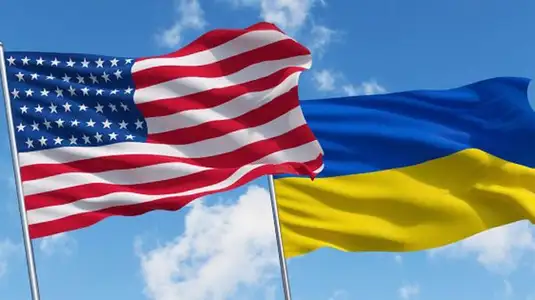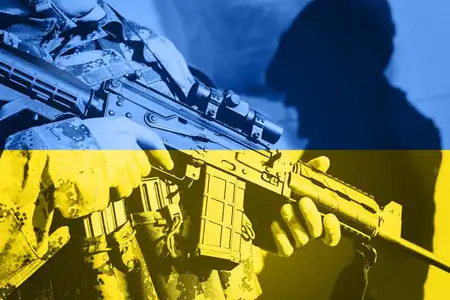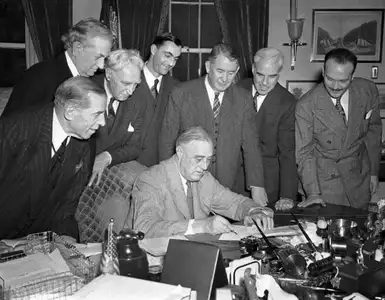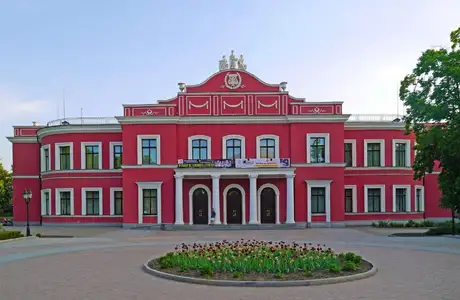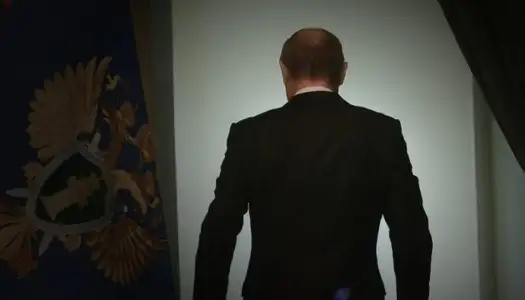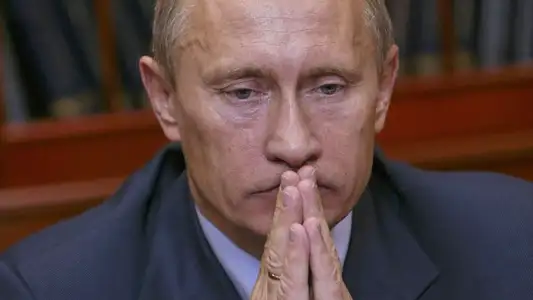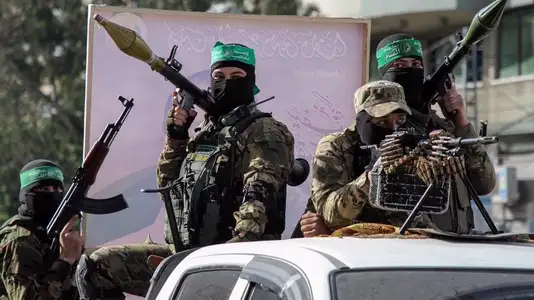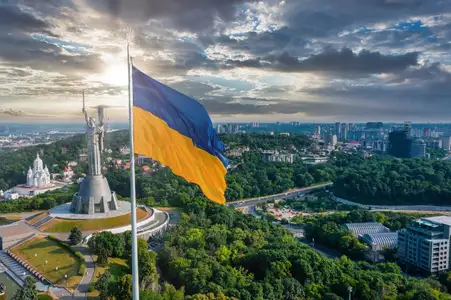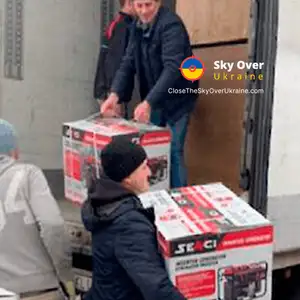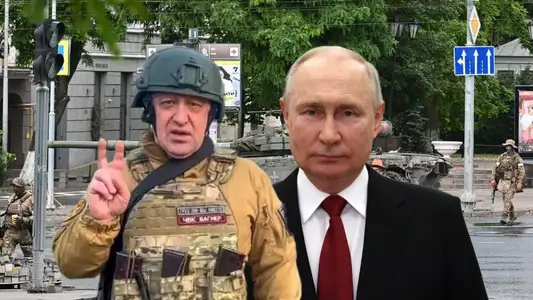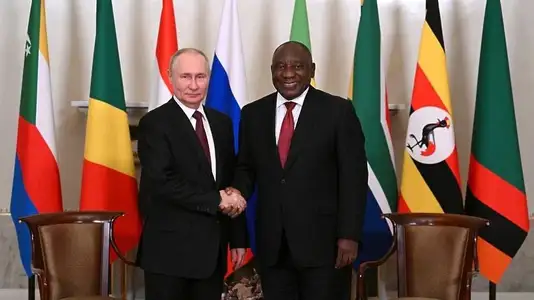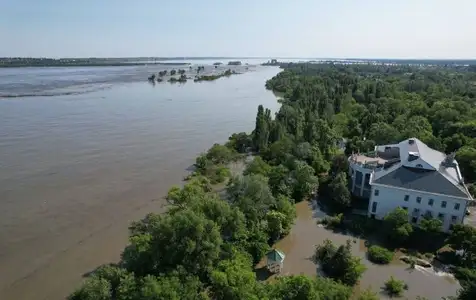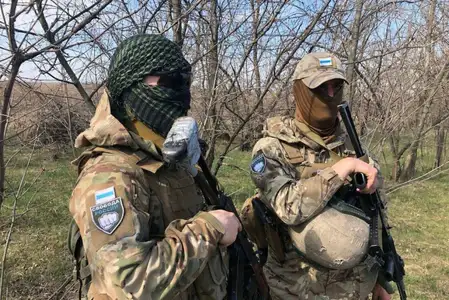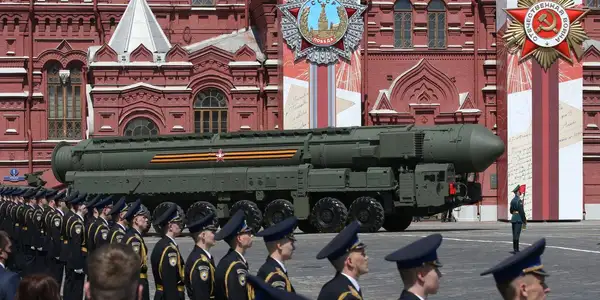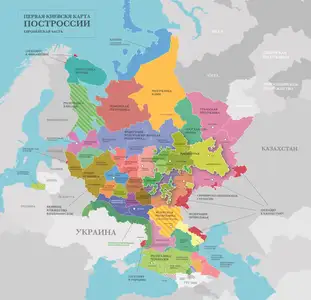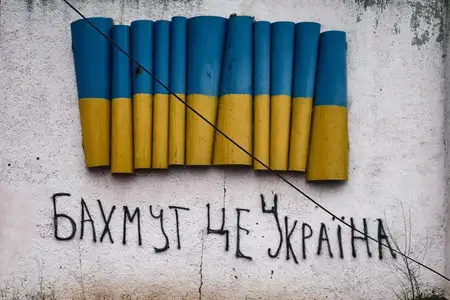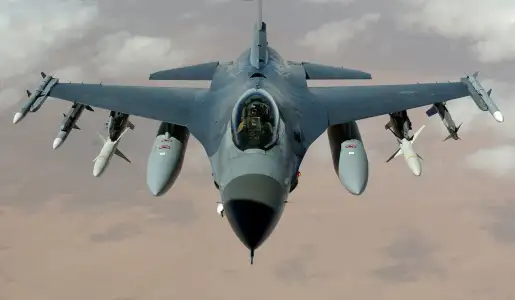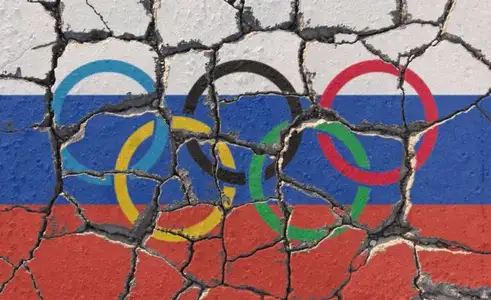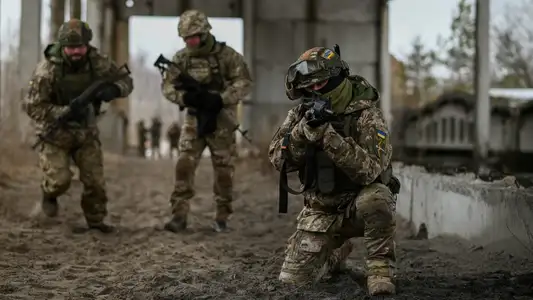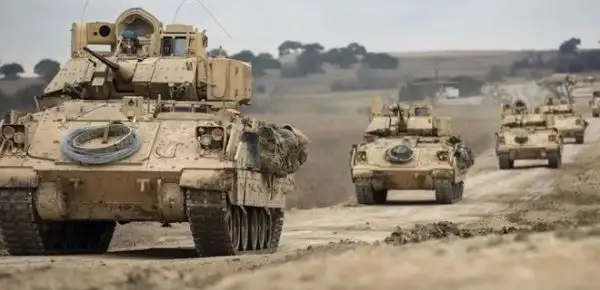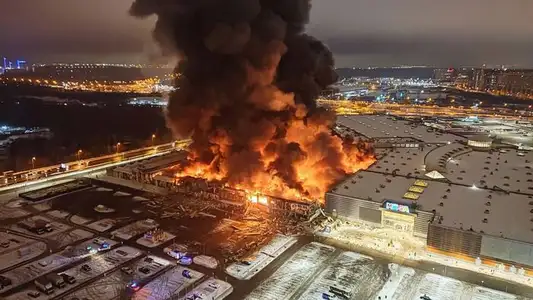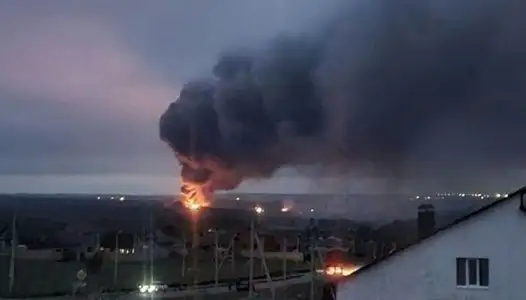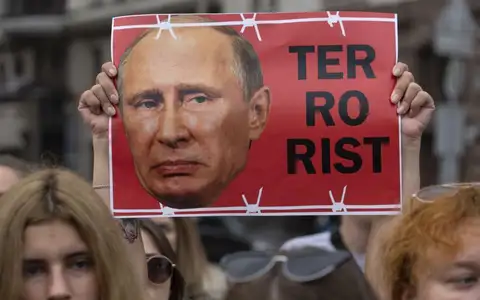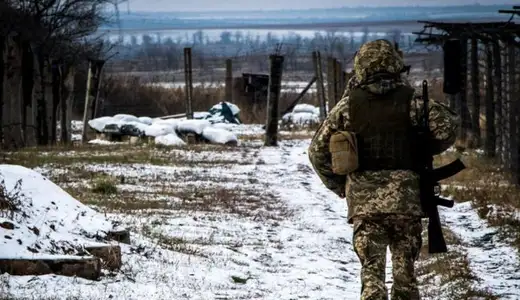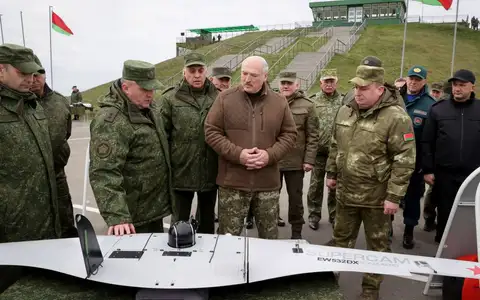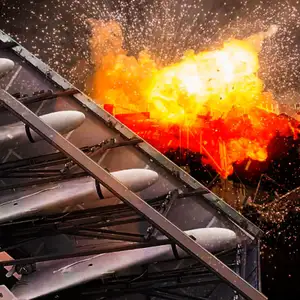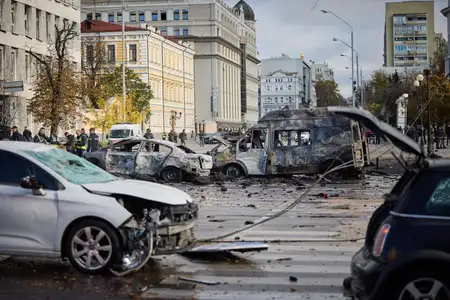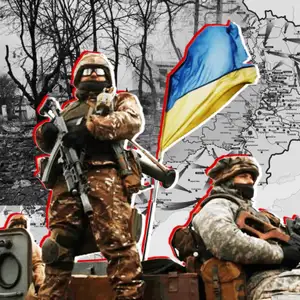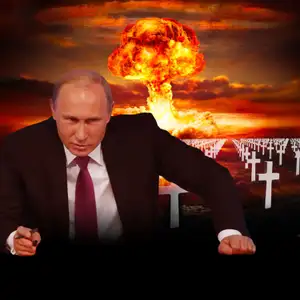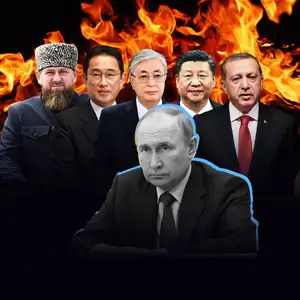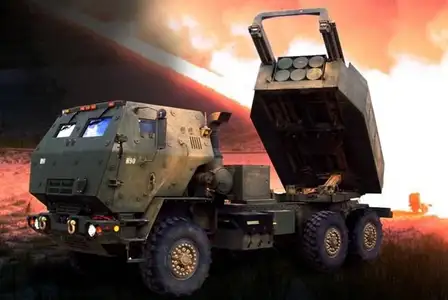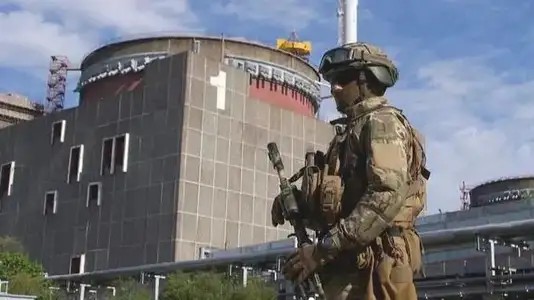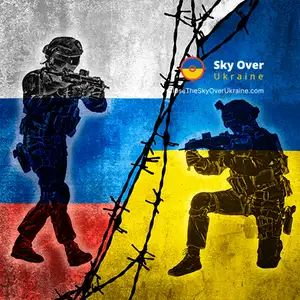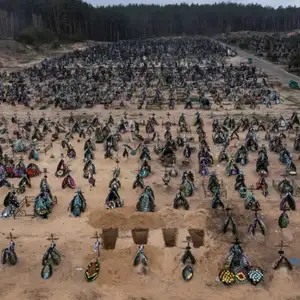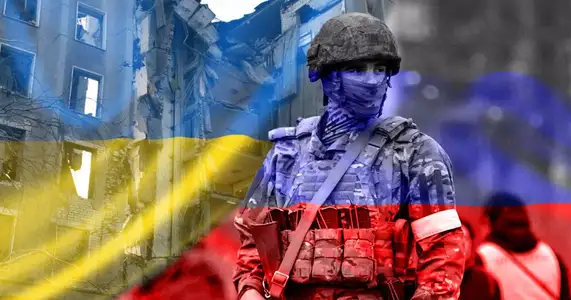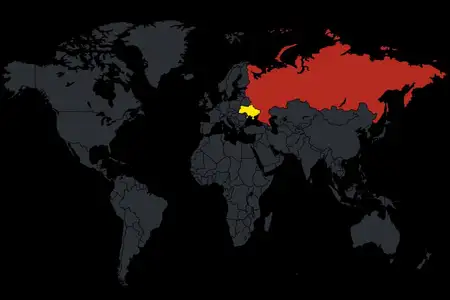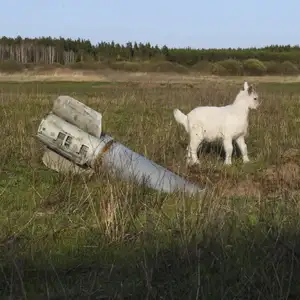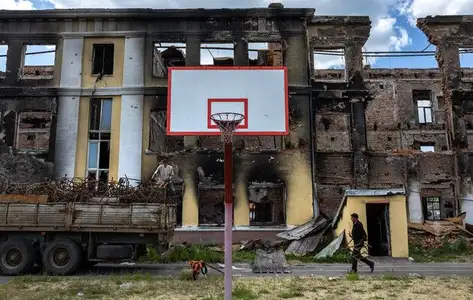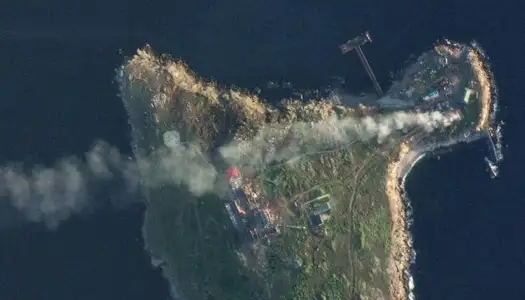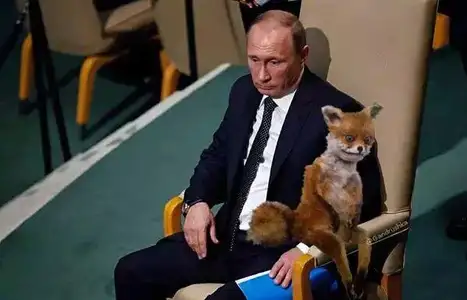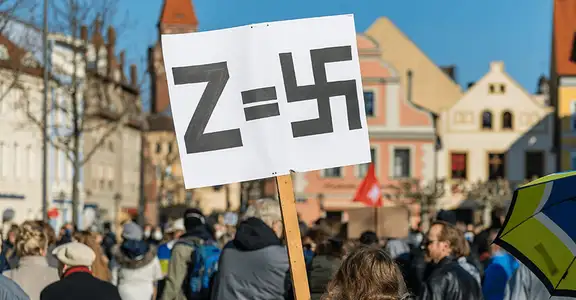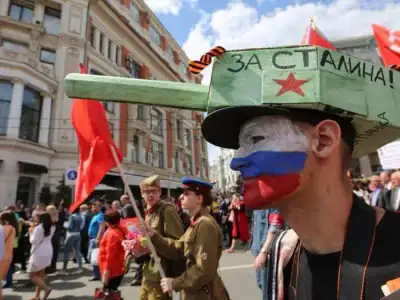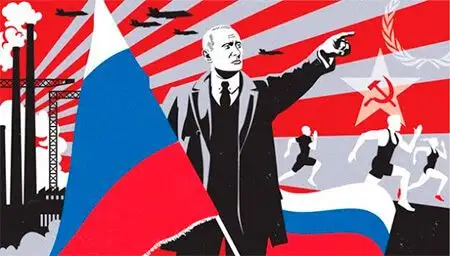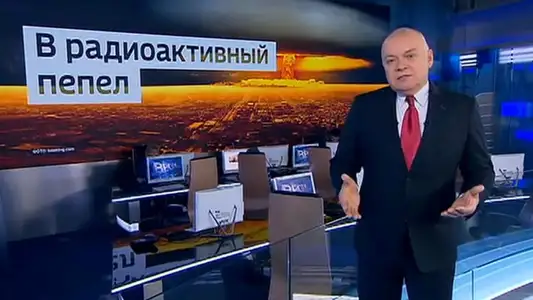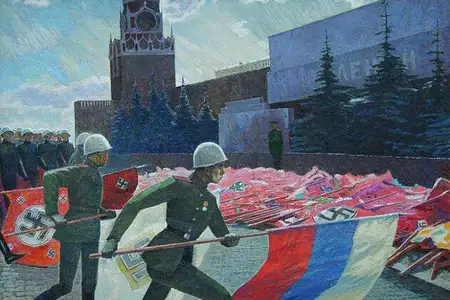Budapest Memorandum: When the guarantor himself violates the guarantee
Russia has been skillfully violating many international agreements. Violation of the Budapest Memorandum is the apotheosis of Russia’s cynicism towards Ukraine.
The Budapest Memorandum signed in 1994 by Ukraine, Russia, the US and UK had to guarantee Ukraine’s security in connection with its acquisition of non-nuclear status.
After 20 years, in 2014, the Russian Federation, one of the guarantors of Ukraine’s sovereignty and territorial integrity, invaded Ukraine, breaking all the ‘guarantees’ you can only imagine. A closer look at this story will help you understand the current situation better.
Non-nuclear status of Ukraine
The unprecedented disintegration of a nuclear superpower, the Soviet Union, in 1991 raised the specter of the single greatest wave of nuclear proliferation in history. Virtually overnight, the Soviet Union’s vast nuclear arsenal was on the territory of not one, but four sovereign states: Belarus, Kazakhstan, Russia, and Ukraine. Ukraine inherited a part of the Soviet nuclear arsenal which at that time was world’s third-largest (after the US and Russia).
In 1992-1993, Ukraine, concerned about its security vis-a-vis Russia, as well as about getting a fair deal, had real misgivings about surrendering its nuclear inheritance. While operational control over nuclear arms in Ukraine remained in Moscow and Ukraine lacked key elements of a nuclear weapons program, it possessed the scientific and technological capacity to develop the missing links in a relatively short time.
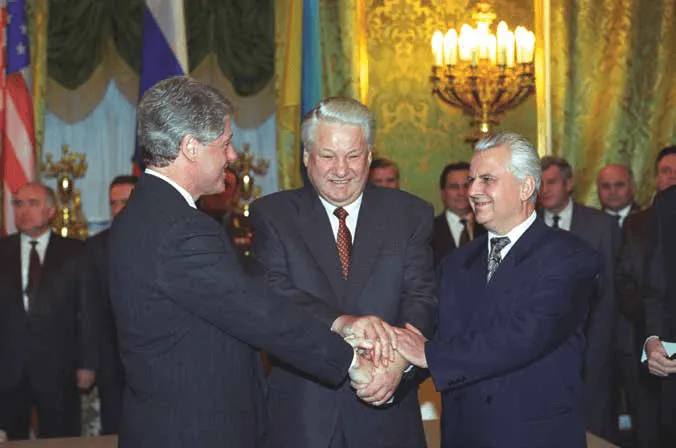
U.S. President Clinton, Russian President Yeltsin, and Ukrainian President Kravchuk after signing the Trilateral Statement in Moscow on 14 January 1994
However, in 1994, Ukraine agreed to relinquish its nuclear arsenal and transfer all nuclear warheads to Russia for decommissioning. This enabled Ukraine to join the Nuclear Non-proliferation Treaty (NPT) as a non-nuclear state.
The NPT is a legally-binding instrument that recognizes only five countries as legitimate holders of nuclear weapons: China, France, Russia, the UK and the US. All other countries are banned from developing a nuclear arsenal and those that have, including India, Pakistan, Israel and North Korea, are not parties to the NPT.
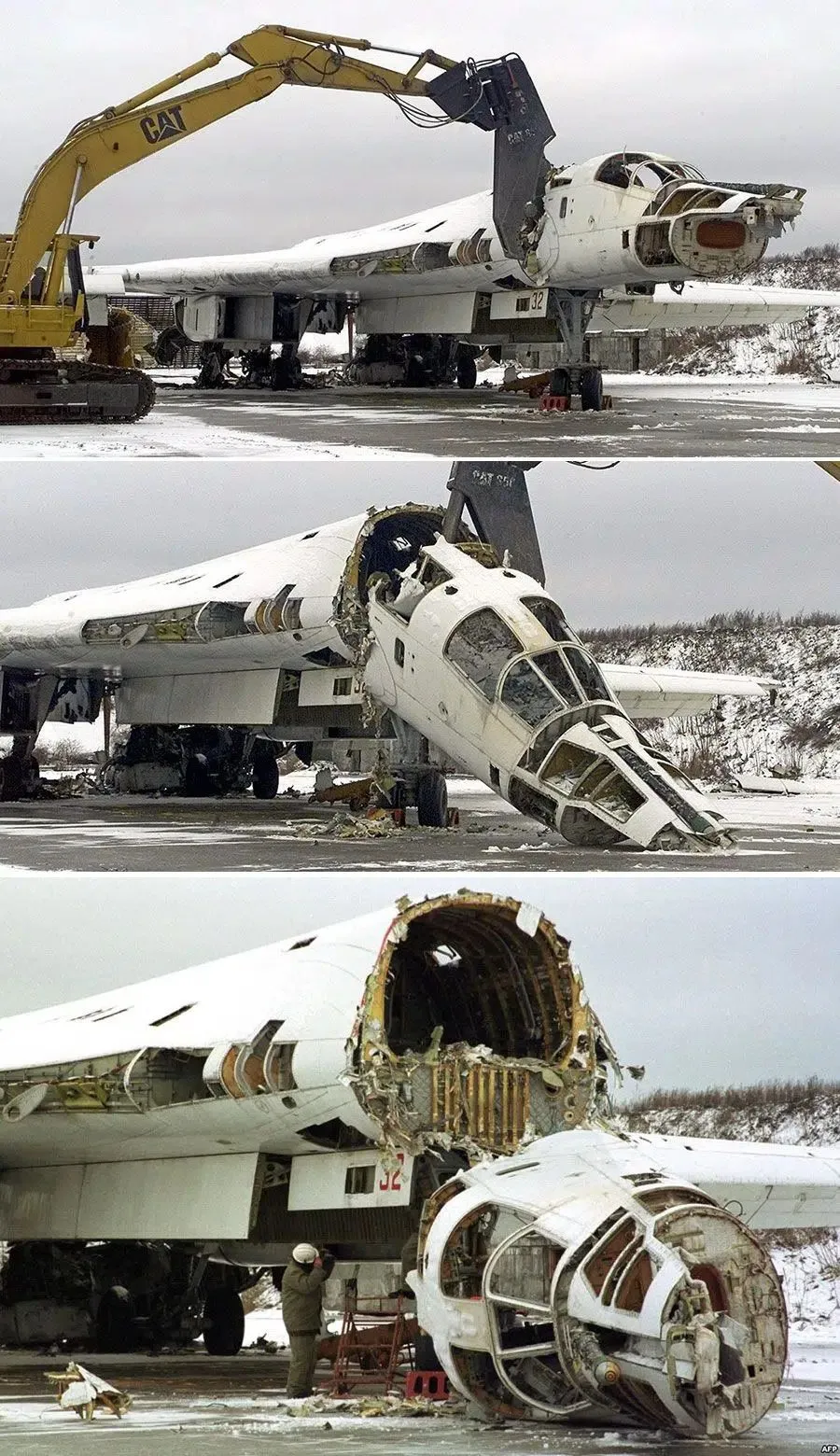
Destruction of Tu-160 supersonic, variable sweep wing heavy strategic bomber (Source)
According to the NPT, Ukraine removed and destroyed its nuclear weapon such as:
- 130 intercontinental ballistic missiles with 6 warheads for each.
- 46 solid fuel intercontinental ballistic missiles with 10 warheads for each, with a range of 11 000 km.
- 25 Tu-95MS – large, four-engine turboprop-powered strategic bomber and missile platform.
- 19 Tu-160 – supersonic, variable sweep wing heavy strategic bomber (one of the world’s largest combat aircraft).
- 1080 long range nuclear cruise “air-to-surface” missiles.
- several hundred nuclear weapons from a variety of units.
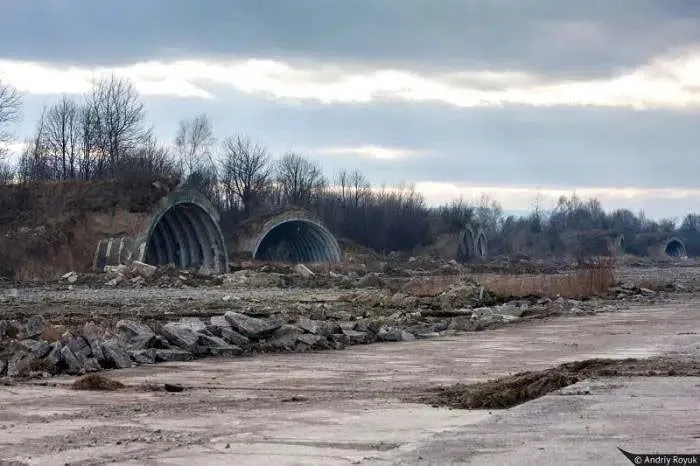
Destroyed air base in Stryy (Lviv region) where 260th Heavy Bomber Aviation Regiment was based (Source)
Budapest Memorandum as a key instrument assuring Ukraine’s sovereignty and territorial integrity
Ukraine’s non-nuclear status was formalized on December 5, 1994 in the form of the Budapest Memorandum following lengthy and complicated negotiations involving the then Russian president Boris Yeltsin, Ukrainian president Leonid Kuchma, US president Bill Clinton and British prime minister John Major.
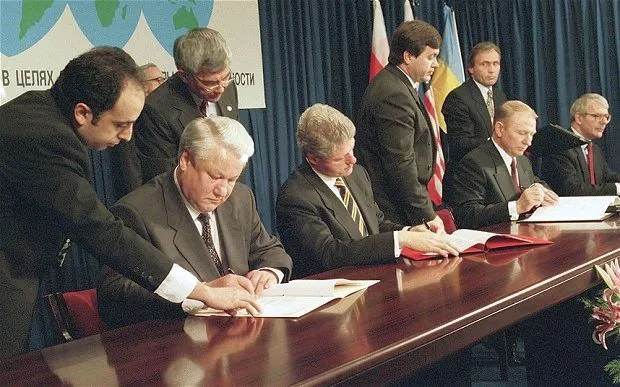
Signing of the Budapest Memorandum on December 5, 1994
According to the document, Kyiv was abandoning its nuclear arsenal and handing over missiles to Russia, as it (Russia) declared itself the successor to the USSR, in exchange for security guarantees and economic assistance.
Instead, the United States, Russia, and the United Kingdom made the following commitments:
- respect independence and sovereignty in the existing borders of Ukraine,
- refrain from the threat or use of force against the territorial integrity or political independence of Ukraine,
- refrain from economic pressure that could violate Ukraine’s sovereignty,
- seek immediate Security Council action to provide assistance to the signatory if they “should become a victim of an act of aggression or an object of a threat of aggression in which nuclear weapons are used”.
- refrain from the use of nuclear arms against the signatory.
- consult with one another if questions arise regarding those commitments.
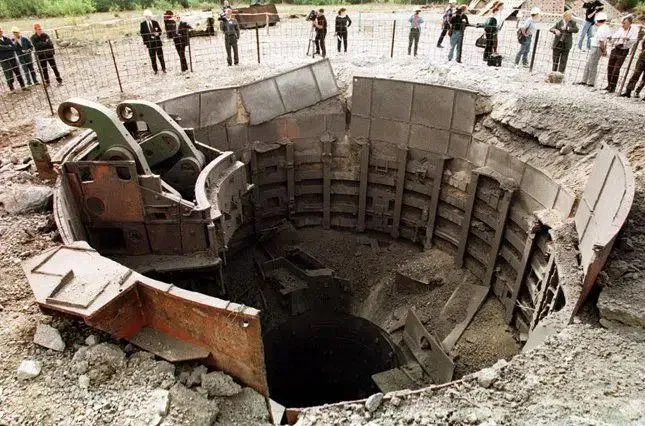
Destroyed missile launch facility (underground missile silo) (Source)
Later on, China and France gave somewhat weaker individual assurances in separate documents. At the same time, similar memorandums on security assurances were signed by Belarus and Kazakhstan. These two countries acceded to the NPT somewhat earlier.
Breach of the Memorandum by Russia: 2014
In February 2014, Russian forces seized or blockaded various airports and other strategic sites throughout Crimea. The troops were attached to the Russian Black Sea Fleet stationed in Crimea, which were placed by Russia in violation of the Budapest Memorandum. The Russian Foreign Ministry had confirmed the movement of armored units attached to the Black Sea Fleet in Crimea but asserted that they were acting within the scope of the various agreements between the two countries.
Further, Russia responded by organizing a “referendum” on whether the Crimea should join it. On March 16, the “referendum” was held; on March 17, Crimea declared “independence”, and on March 21, it was incorporated into the Russian Federation. Ukraine vigorously protested the action as a violation of Article 1 of the Budapest Memorandum.
After the annexation of Crimea by Russia in March, Canada, France, Germany, Italy, Japan, the UK, and the US (the Group of Eight) stated that Russian involvement was a breach of its Budapest Memorandum obligations to Ukraine and a violation of Ukrainian sovereignty and territorial integrity.
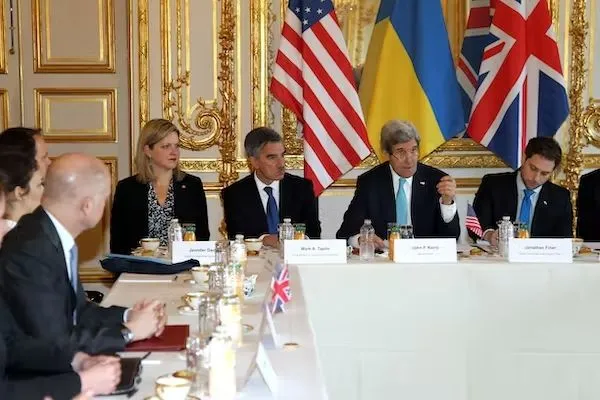
US secretary of state John Kerry in discussions with Britain and Ukraine about Russia’s violation of the Budapest Memorandum after Russia’s 2014 annexation of Crimea
Acting in his usual cynical manner, the Russian president Vladimir Putin replied on 4 March to the question on the violation of the Budapest Memorandum, describing the current Ukrainian situation as a revolution: “a new state arises, but with this state and in respect to this state, we have not signed any obligatory documents”.
Moreover, playing its favorite “mirror game”, the Russian party suggested that it was the US who was in violation of the Budapest Memorandum and described the Euromaidan (Revolution of Dignity) as a US-instigated coup.
As you know, the international response at that time was rather indolent – although the US and the UK did subsequently step up their efforts to strengthen Ukraine’s armed forces through training and provision of lethal defensive arms. Ukraine then succeeded, with extraordinary efforts (despite an essentially defunct army) in containment the Russian aggression in the east of the country. However, parts of the Donetsk and Luhansk regions were actually occupied. The invasion subsequently turned into a simmering conflict.
In February 2016, the Russian Foreign Minister Sergey Lavrov claimed: “Russia never violated Budapest memorandum. It contained only one obligation, not to attack Ukraine with nukes”.
Full-scaled invasion in 2022
On the eve of the new full-scaled invasion, Ukrainian President Volodymyr Zelensky publicly commented on the Budapest Memorandum by arguing that it provides no true guarantee of safety due to Russia’s coercive power. On 19 February 2022, Zelensky made a speech at the Munich Security Conference in which he said:
“Since 2014, Ukraine has tried three times to convene consultations with the guarantor states of the Budapest Memorandum [i.e. United States and United Kingdom]. Three times without success. Today Ukraine will do it for the fourth time. [...] If they do not happen again or their results do not guarantee security for our country, Ukraine will have every right to believe that the Budapest Memorandum is not working and all the package decisions of 1994 are in doubt.”
Some took this statement as a hint at the possibility of restoring nuclear status if the countries of the Budapest Memorandum do not provide security guarantees to Ukraine. However, Zelensky did not express such an idea. On the contrary, he made it clear that Ukraine could have developed its nuclear weapons long ago (because the memorandum was violated back in 2014), however Ukraine did not do so.
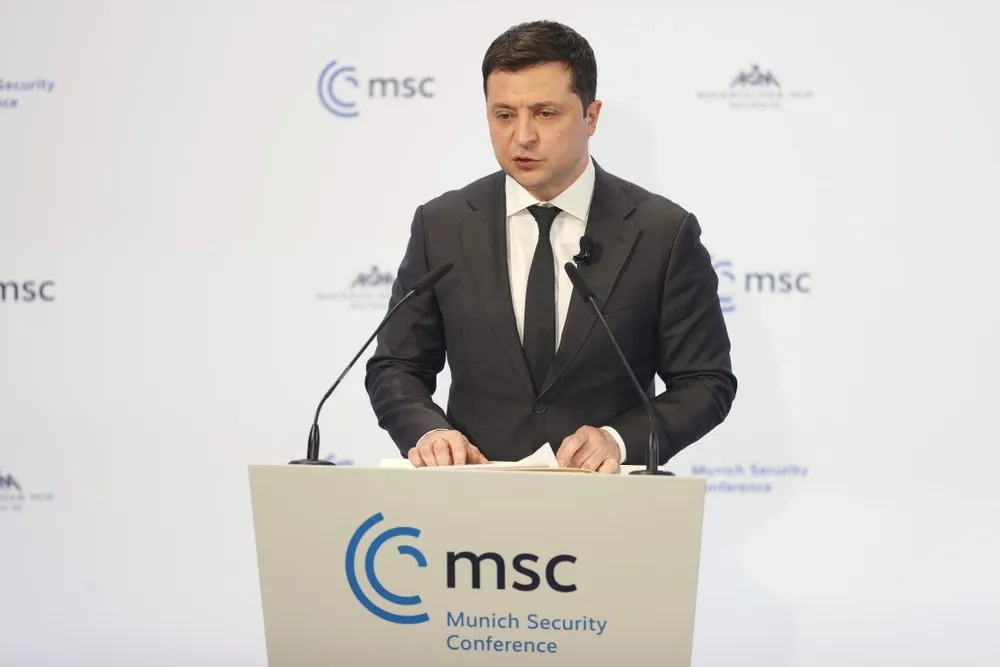
Ukrainian President Volodymyr Zelensky delivers a statement during the 58th Munich Security Conference (MSC) on February 19, 2022 in Munich, Germany
But Putin used Zelensky’s comments as part of his claims that Ukraine could develop nuclear weapons. “Ukraine intends to create its own nuclear weapons, and this is not just bragging.” Then he built a second case that the United States is converting its missile defenses into offensive weapons, and has plans to put nuclear weapons on Ukrainian territory. Thus, for him, it was a justification of the Russian attack on Ukraine, which was presented as a “preventive” one.
Russia’s invasion of Ukraine started on February 24, has become an even more serious violation and effectively buried Russia’s assurances in the Budapest Memorandum. Moreover, on February 27, Putin ordered that Russian nuclear deterrence forces be placed “on high alert”, explaining that “this need was dictated by the aggressive statements towards Russia voiced by the heads of NATO member states”. This is actually a further repudiation of Russia’s assurances towards Ukraine, as it raises the specter – no matter how distant – of a nuclear war.
Far-reaching consequences
The whole situation around the Russian war in Ukraine and breach of the Budapest Memorandum can have (and already has) serious negative consequences in two main dimensions: 1) worldwide nuclear non-proliferation and disarmament; and wider – 2) breakdown of international order.
- Worldwide nuclear non-proliferation and disarmament
Other states in Russia’s neighborhood – and in the wider world – may begin to question whether such assurances are sufficiently reliable to ensure their long-term security. This may, in turn, undermine the credibility of major power security assurances, previously used as bargaining chips to dissuade countries such as Belarus, Kazakhstan and Ukraine from possessing nuclear weapons.
Furthermore, this experience could change the rhetoric around nuclear non-proliferation that currently turns states seeking nuclear weapons into “international pariahs”. Amidst Ukraine’s experience, the pursuit of nuclear weapons to protect its sovereignty and independence can be seen as more legitimate.
As experts note, doubts about the reliability of such assurances could create incentives to initiate, retain or accelerate national nuclear weapons programs.
Such a development would be dangerous not only because it serves to weaken the nuclear non-proliferation regime, but it could also lead to increased chances of an avoidable nuclear war.
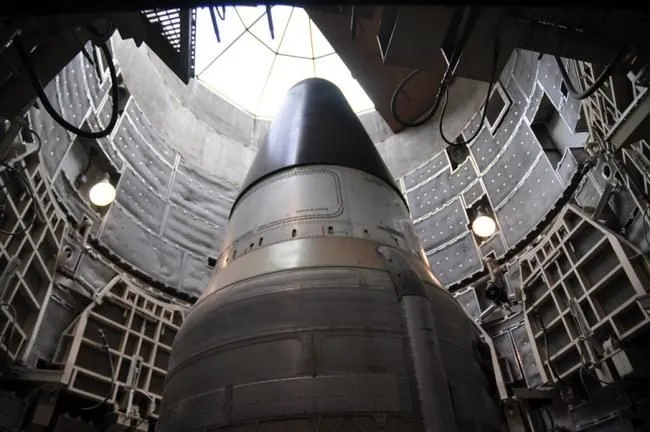
The growing threat of global terrorism has only heightened the need for disarmament and non-proliferation (Source)
- Breakdown of international order
Moreover, because the Budapest Memorandum included restatements of UN Charter provisions and principles articulated in the Helsinki Final Act of the Conference on Security and Cooperation in Europe, Russia’s disregard for the Budapest Memorandum has raised fundamental questions about the future of international order.
No surprise that some Ukrainian leaders and the public feel betrayed and consider that the security assurances they received in the Budapest Memorandum are not worth the paper they were written on.
What credibility can there be in the future for such international agreements if they do not work in practice? Putin’s war against Ukraine prompts a global review of the concepts of international agreements and their effectiveness and expediency.
Putin’s Russia as a global threat
One can get the impression that the very breakdown of international order is the main goal of the nowadays Russian Federation.
Already in 2014, the Russians have demonstrated that, despite economic sanctions and international condemnation, they are prepared to disregard longstanding legal and political norms, including those expressed in the Budapest Memorandum, in pursuit of strategic and economic advantages and the fulfilment of their national identity goals. Unless Russia reverses its dangerous course, the fate of the Budapest Memorandum may in retrospect stand out as a landmark in the breakdown of international order, experts say.
Russia, which was supposed to be the guarantor of Ukraine’s security, sovereignty, and territorial integrity, attacked it, depriving it of security, sovereignty, and territorial integrity! And killing its citizens.
The statements, promises, and signatures of Russian leaders are worthless. For more than 20 years, the Russian Federation has been acting like a bandit and a bully, who is definitely not going to stop at Ukraine.
The US and the UK, the guarantor of Ukraine’s security, have been providing the most active assistance to Ukraine in 2022. But the pressure on the aggressor state has to be more decisive and comprehensive, and from the side of the whole world community. Russia in its present form must be isolated from the civilized world. Otherwise, we can hardly remedy the situation, and it will become more and more threatening to the entire world.
Anastasiya Glotova
